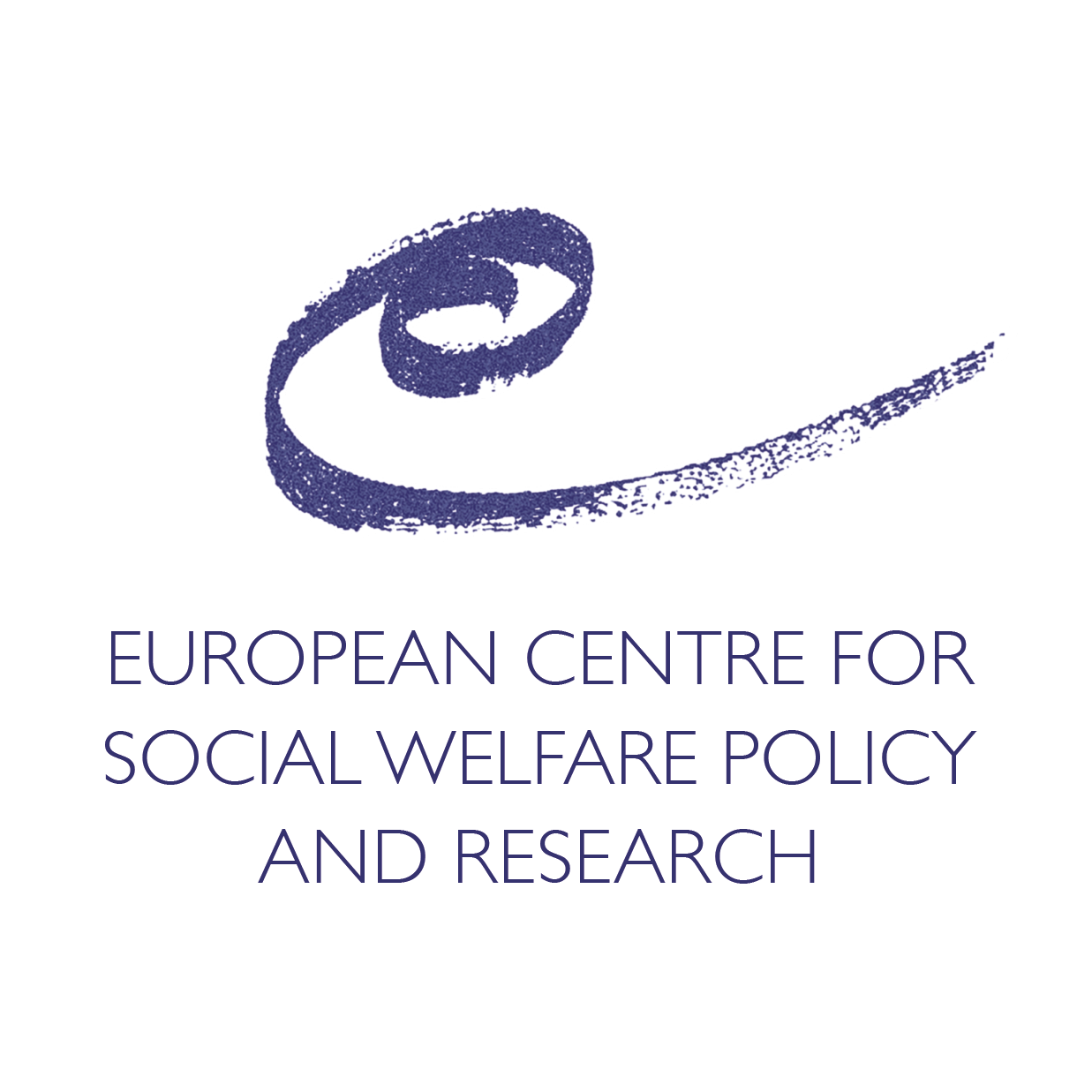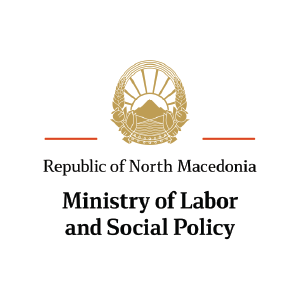The InCARE project will contribute to the design of a coherent and coordinated approach to the development of national long-term care policy and care services at local and regional level, by establishing socially innovative and participatory decision-making processes.
We work with care users, care provider organizations and policy-makers in Spain, Austria and North Macedonia to design, implement and scale-up innovative care services, with the ultimate goal of improving the well-being of older people and their families and increase their access to adequate and affordable care.
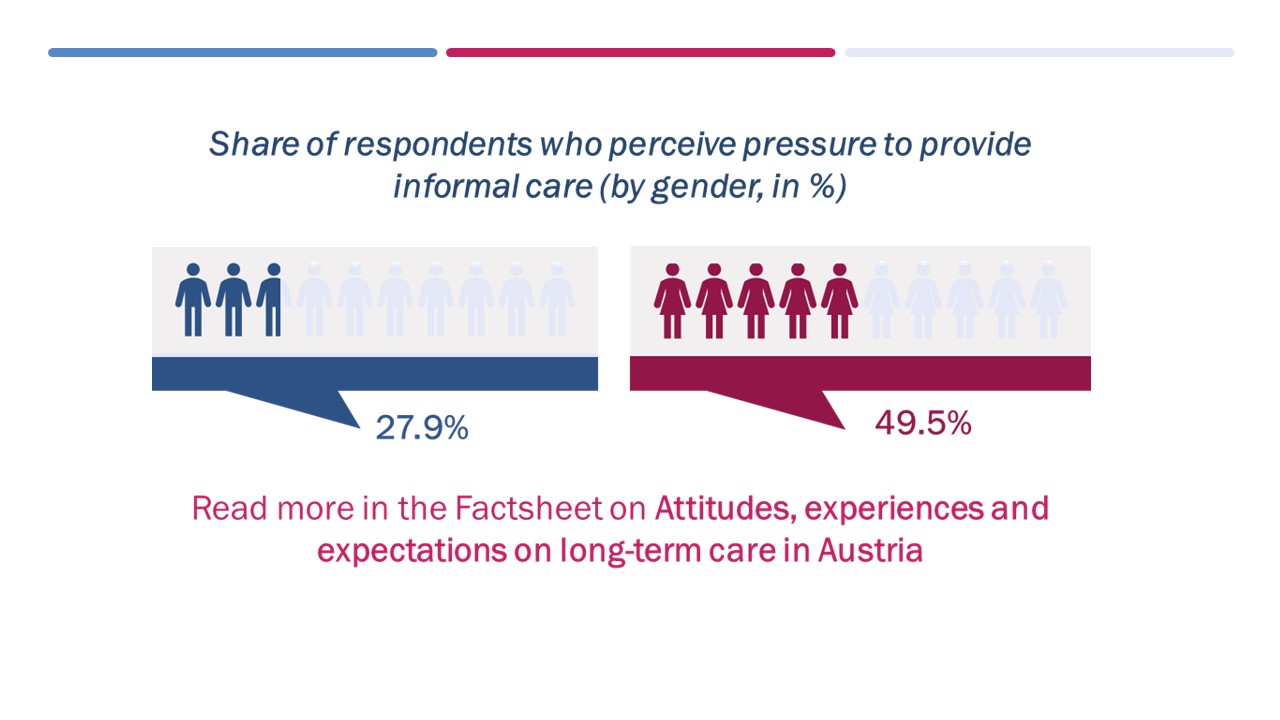
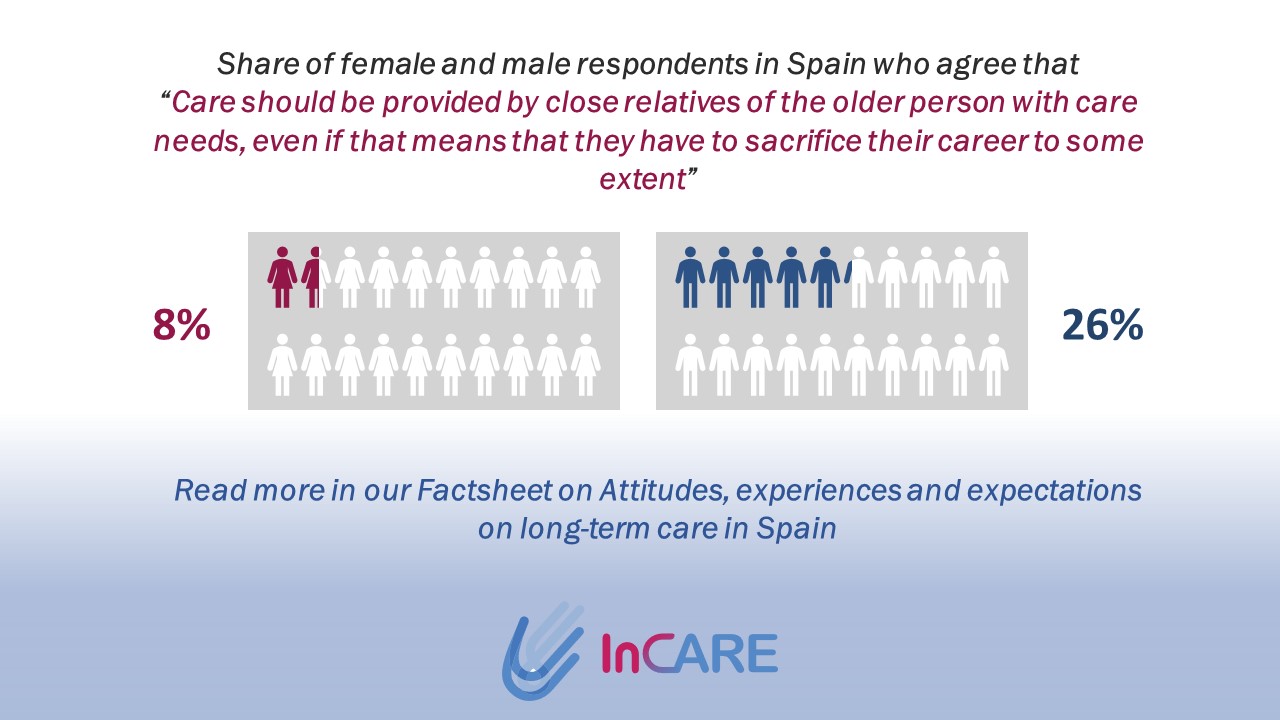
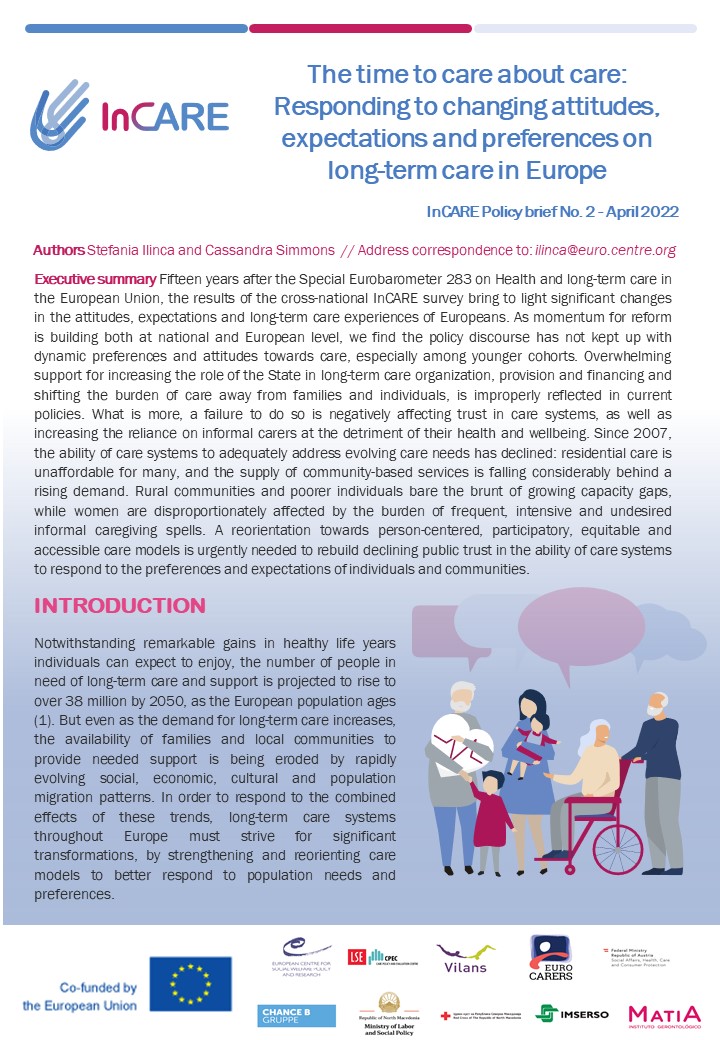
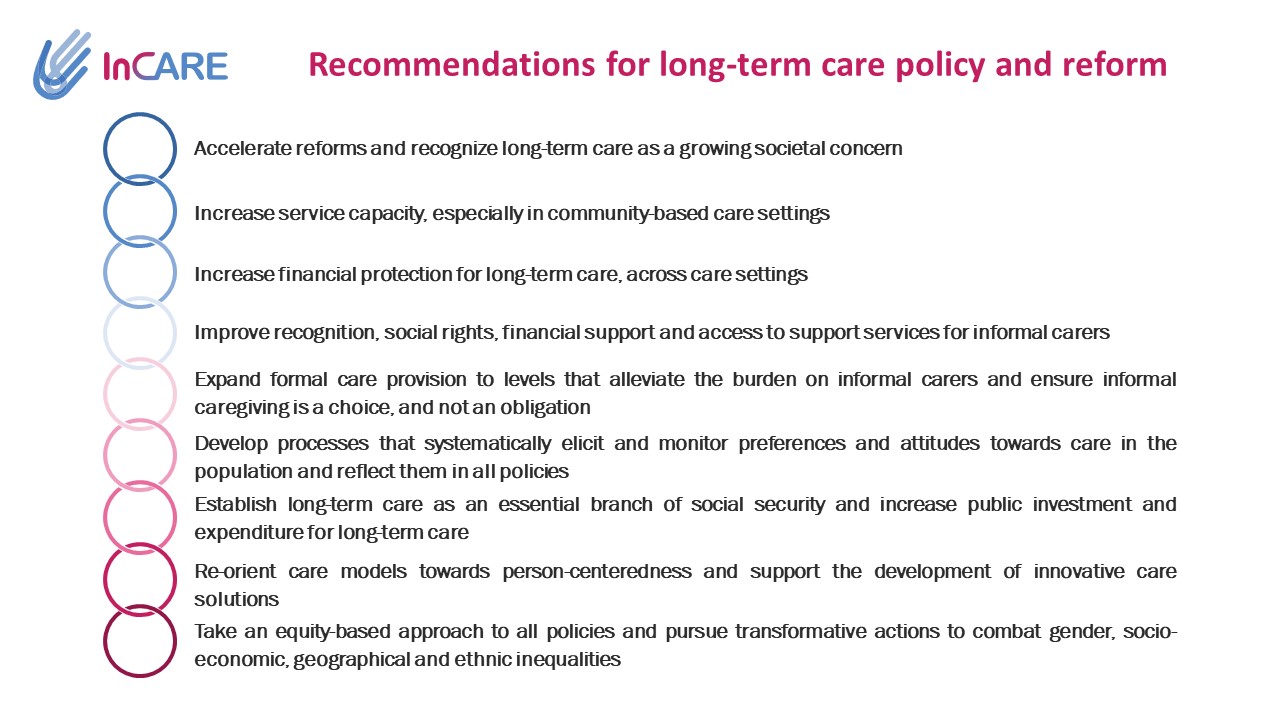
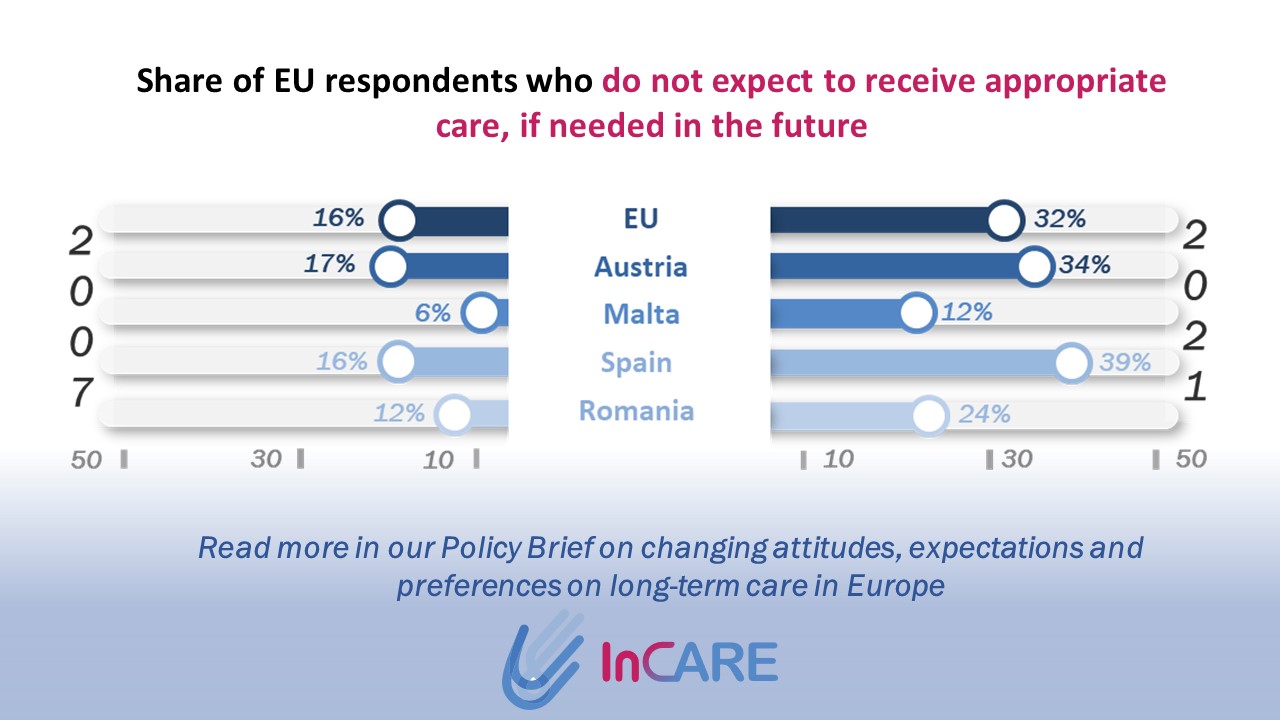
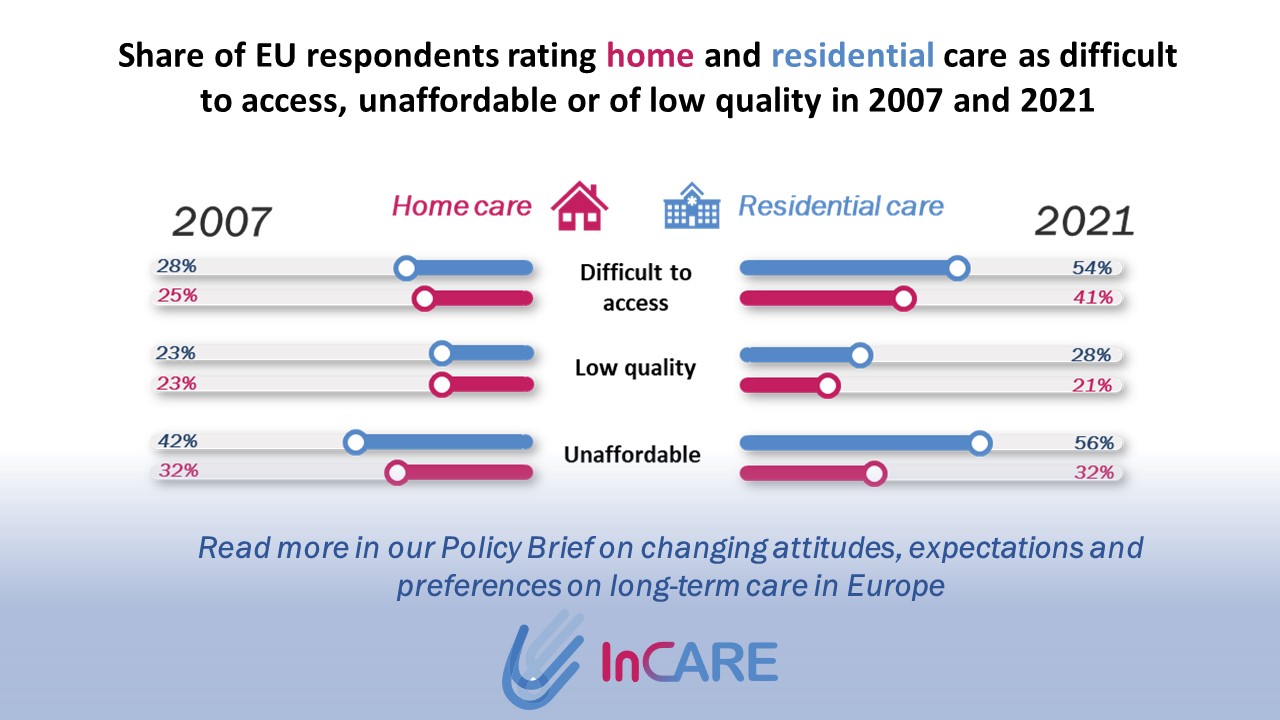
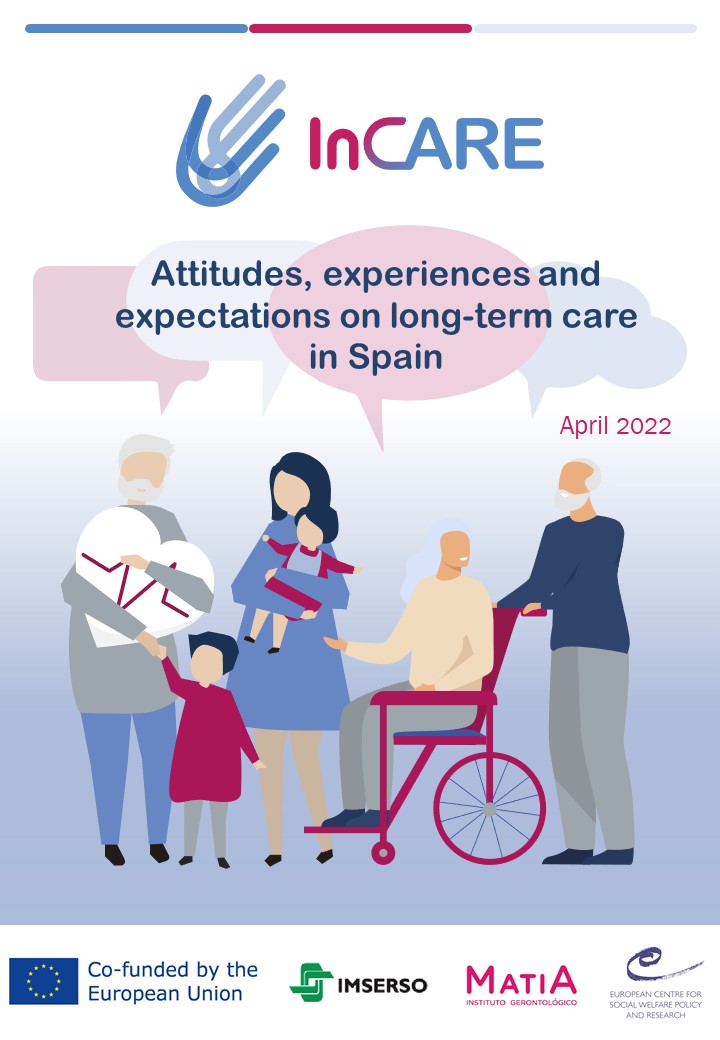
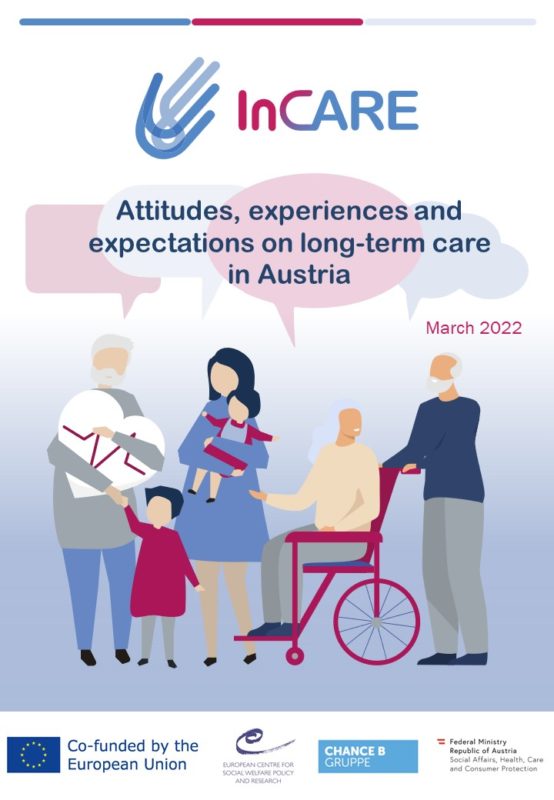
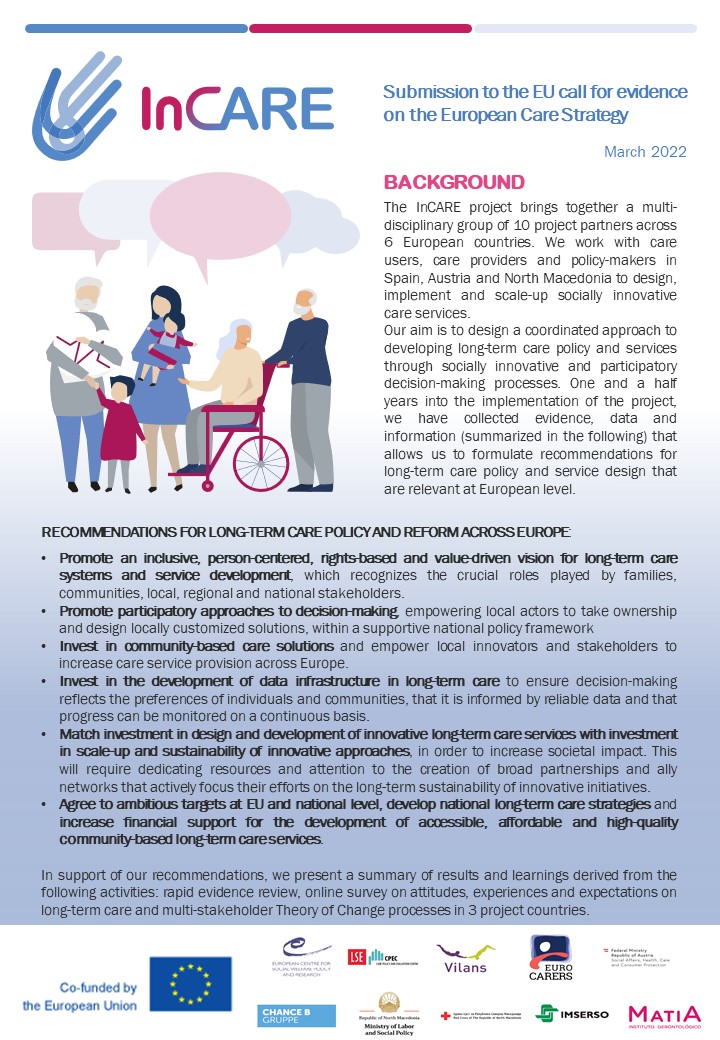









The government should invest in training social workers, so that quality of care is as high as possible, and at the same time the social status of social workers, professional carers and nursing staff is raised, they are better paid, and young persons would like to choose such careers.
“It’s very difficult to take care of elderly. It causes a lot of stress with effects on health. Wished for some more support structures. Needs have to be assessed often as they can change frequently.”
I visit my stepmother who is in a wheelchair after a severe stroke 14 years ago. She can cope with the costs of care so I can see the restrictions she faces even when there is sufficient money. She is physically but not mentally disabled. She is unable to use a smart phone or an I-pad and needs 24 [hour] help. She cannot use even disabled toilets. Access into taxis is difficult and impossible in a private car.
Start to talk openly [about] discrimination of elderly in Sweden which has been going on AT least 20 years by now [emphasis in original].

